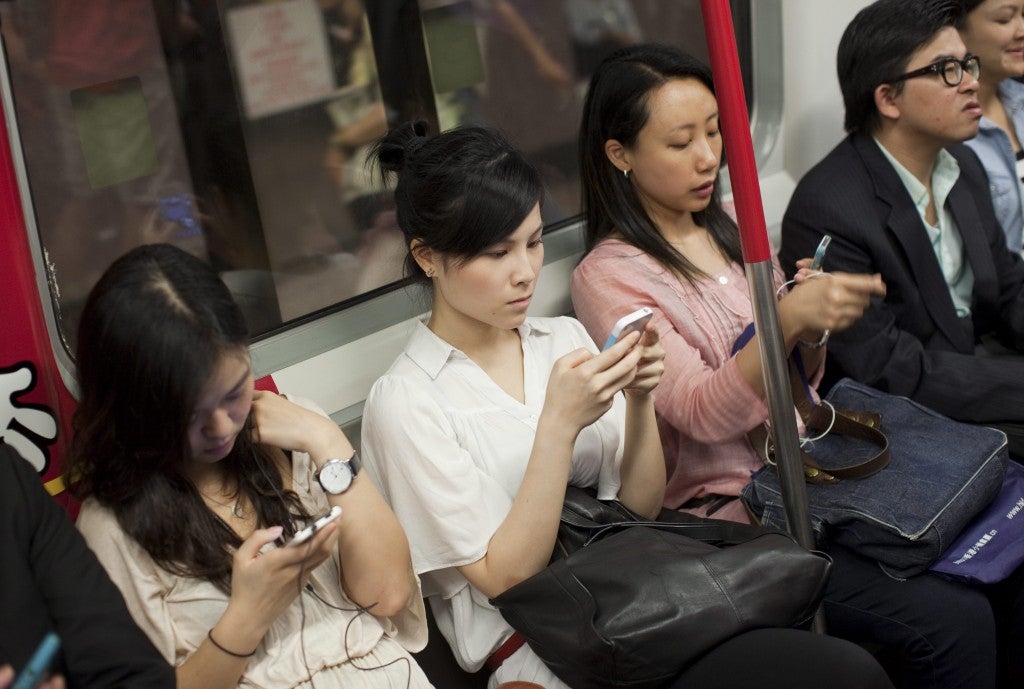Can China’s Social Media Break the Chains of Censorship?
Helle Dale /
Social media in China are pushing the envelope of government control, but China’s censors are demonstrating that they still have the stuff.
For instance, where to turn for news if one of your country’s top officials has mysteriously disappeared? If you are Chinese and the official is vice president and designated Communist Party leader Xi Jinping, who went missing from public view nine days ago, the tightly controlled state media would not be the place to look for information.
You might try the Internet, where China’s social media website Sina Weibo is growing into a giant fast-flowing public square. However, China’s censors would have gotten there ahead of you there, too.
All information relating to Xi and another missing Communist Party official, He Guoqiang, has been blocked in Sina Weibo, as reported by Radio Free Asia. A U.S.-based Chinese website, Buxon, had reported that the two officials were severely injured in a car crash, but no reference to this report is allowed inside China.
The challenges to China’s censors are growing, however. The Chinese government’s information office created Sina Weibo three years ago after Twitter and Facebook were shut out of China by the country’s Internet filter, the Great Firewall. With 300 million users currently and a hybrid Twitter/Facebook model, Sina Weibo is the largest social media network in the world. Last year, Sina Weibo launched an English language version, which foreign users are free to join—provided they don’t mind handing the Chinese government their personal online information.
A fascinating investigative article in Toronto’s Globe and Mail lists a series of remarkable online exposures by Weibo users who have successfully circumvented the Chinese censors:
- The best known is the Wenzhou train disaster, in which two high-speed trains collided outside the city of Wenzhou on July 23, 2011. Forty people were killed. Weibo users on the trains used their cell phones to report the crash and to call for blood donations. Later, millions of Weibo messages demanded an investigation as officials tried to cover up the accident—even to the point of burying one of the railway cars.
- Weibo users provoked demonstrations against health risks accompanying a molybdenum copper plant planned by the local government of Shifang, Sichuan. In July, construction was halted after widespread, violent clashes between police and protestors.
- Photos of forced abortions posted by family members sparked outrage over the government’s one-child policy. One woman, seven months pregnant, was abducted by family-planning officials in Shaanxi province and forced to abort her child. “This is just the tip of the iceberg,” one user wrote.
- Weibo animal rights activists protested a “dog-meat festival” in the city of Jinhua, in coastal Zhejiang province. Last fall, photographs of the fate of the dogs were posted online. “This is not a festival, this is a massacre! Call on China to pass animal protection laws!” read the caption. As a consequence, officials canceled the festival this year.
- An orgy by Communist Party officials was exposed in Lujiang, Anhui province. Officials from the Communist Youth League were identified online as participants in orgy photographs. A younger party member and his wife had to take the fall for incriminated older party members.
The creation of Sina Weibo is clearly having unintended consequences for the Chinese government. At the same time, Chinese citizens continue to need the link to the outside world—through Internet circumvention of the Great Firewall and through international broadcasting (such as Radio Free Asia and Voice of America) in order to breach walls of censorship.
The fate of Xi Jinping will undoubtedly be known to the rest of the world before the news reaches China’s citizens themselves.

